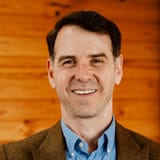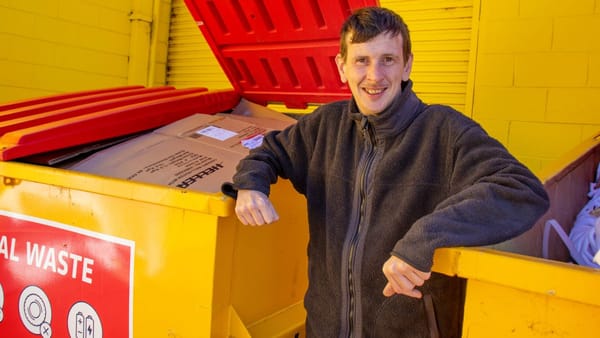‘If you don’t listen, you don’t learn’: Stolen Generation survivor just wants to be heard
Leading up to the Voice referendum, three members of the Stolen Generation, including a Murray Bridge man, have held a yarning circle at Colebrook Reconciliation Park.

Locals support locals — that’s why this post about the upcoming Voice referendum is free to read. Your support helps Murray Bridge News tell important local stories. Subscribe today.

A Murray Bridge man and two other members of the Stolen Generation have reunited in the name of reconciliation – and to call for a yes vote in the upcoming Voice referendum.
They met on Thursday at Colebrook Reconciliation Park, formerly Colebrook Home at Blackwood, which housed 350 Stolen Generation children from 1943 to 1972.
Uncle Graham McKenzie, from Murray Bridge, joined his mate and former Murray Bridge co-worker Ian McLiesh, Uncle Raymond Finn, Auntie Kunyi June Anne McInerney, high school students and others for a yarning circle about the Voice referendum and what Colebrook was like.
Mr McKenzie, 80, was taken from his mother when he was just one month old and sent to Quorn before being transferred to Colebrook Home a year later.
“I didn’t know why I was here,” he said.
“I always wondered who my mum and dad was.”
Mr Finn said the environment at Colebrook was abusive: “There was a little bit of happiness, but a lot of sadness”.
Mr McKenzie’s little bit of happiness involved he and his mates climbing up the cliff face in a nearby quarry.
They also greased train tracks so that steam trains would slow down enough for him and his friends to jump aboard and ride to Mount Barker.
A less dangerous pursuit was sport, which he said had saved him from some of the “really nasty” male superintendents at Colebrook.

The white kids in and around Blackwood didn’t care that the Colebrook kids were Aboriginal; instead, they gravitated to the sporting activities Mr McKenzie helped organise.
“The kids around here always used to come here and come play cricket with us,” he said.
“We made a cricket pitch out of white clay; we made a footy oval in the scrub.
“They were all non-Aboriginal kids, and they were our mates – we had a good time.”
One such mate was Mr McLiesh, who would hear in his verandah sleep-out the sound of night trains slowing down – probably the same ones Mr McKenzie had slowed down – and enjoyed going to Colebrook to play cricket or go yabbying.
“I was quite a timid kid I think, and a lot of kids over here (at Colebrook), you had to admire,” Mr McLiesh said.
“There was a guy called Colin Barton at primary school, and because he was so good at footy, you look at him and go, ‘I’d like to be friendly with this bloke and learn a bit’.
“I don’t know if I had any developed prejudices then, but it certainly didn’t stop us mixing.”
Locals support locals. Your support helps Murray Bridge News tell important local stories.
The kindness and understanding they found from their peers gave the children at Colbrook a reprieve from the abuse they endured.
“We were well accepted in Blackwood and Coromandel football and cricket,” Mr McKenzie said.
“A lot of us captained the Blackwood Primary, which was great for a black kid to captain a white school.
“I was the only Aboriginal at Goodwood Tech, and I captained (a range of) teams – I had to, to be accepted.”
‘It’s about time that people started listening’
Mr McLiesh later became a pilot, then a social worker alongside Mr McKenzie in Murray Bridge in the 80s.
Mr McKenzie said he had always been good at sport, playing district cricket at a colts level on Adelaide Oval and playing three seasons of footy for Port Adelaide from ’64 to ’66.
His coach was legendary Port man Fos Williams.
Mr McKenzie also coached a lot of kids in Murray Bridge and said the advice he had given them also applied to the current Voice referendum: “If you don’t listen, you don’t learn”.
“It’s about time, after 80 years, that people started listening to the real needs of the Aboriginal people in this country,” he said.
“We had no say about how we grew up.”
Unfortunately, despite being an 80-year-old man and a highly respected elder, Mr McKenzie said his voice was still being silenced.
“I have to be aware of who I’m talking to and know what sort of background they’ve got, but I keep it all to myself in my own mind … and I shouldn’t have to feel like that, but there are so many racist people,” he said.
As Mr Finn put it: “I didn’t have a voice here, Graham didn’t have a voice here, so it’s our chance to do it”.
“The No campaign … creates a lot of hatred and anger,” he said.
“I thought it would bring out the best in people; it just brings out the worst.
“Someone said to me, ‘Get back to the creek where you belong’, and I thought … I live in the middle of Sydney!”

Has Australia gone backwards?
Fighting back tears, Mr McLiesh said that the Aboriginal kids he got to know at Colbrook shaped the course of his career.
“It’s quite emotional,” he said.
“A lot of what I’ve got out of life and achieved in life has been about those kids.”
Both he and Mr McKenzie agreed that, in terms of reconciliation, Australia had gone backwards in some ways.
“It seems that generally speaking, people are so out of touch with Aboriginal people and issues,” Mr McLeish said.
“I think that, partly (due to) the No people, people are scared.
“I can understand them being scared, but if you’re scared, it’s a good idea to find out why, what to do about it … if you don’t know, find out.”
Corrections: An error in the spelling of Mr McKenzie’s name and an error in the name of Ms Kunyi June Anne McInerney have been corrected.
Locals support locals. Your support helps Murray Bridge News tell important local stories.





